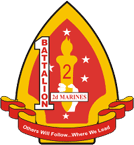DuncanLang
Posts: 64
Joined: 5/9/2005
From: Spotsylvania, VA
Status: offline

|
I have a bit more experience with the game (still only vs AI at present) since my first post (“Comments from a Newcomer to WITP”, 6/8/05) and continue to really enjoy it. I have also read quite a bit of, and learned a lot from, the various forums. I particularly enjoyed much of the discussion in the “Senseless and useless prep point rant” thread, because I am a particular fan of that feature. As I read the first post I thought of a number of things to respond with, but as I read down the thread I found that others had covered most of them.
However, some other points were raised, that got me thinking. One point was that the game “plays too fast.” I would have to say that the game doesn’t necessarily play too fast, but we (as players) may tend to play it too fast.
(WARNING: if you are more interested in WITP as a game, than as a simulation, which is perfectly understandable, ignore the below).
For example, while it was something I knew at a certain level, I was somewhat surprised when I recently came across a listing of major amphibious operations of the Pacific War (regiment-sized or larger opposed initial landings) and noted that there were no such operations between Guadalcanal in August 1942 and Attu in May 43 (there were 10 in 43, 19 in 44 and 12 in 45).
I am currently playing the Guadalcanal scenario (as Allies vs. AI) and made 2 such operations (in addition to Guadalcanal) before the end of 42, have 2 more in the works, and also made a couple of unopposed/less than regiment-sized landings). I think there are a couple of reasons for this faster pace.
One is that, even with having to deal with prep points, etc., it is still a lot easier for us to plan and execute a landing than it was in reality because we have fewer factors with which to deal. As just one example, while we do have to think about supplies, our supplies are generic. The real planners had to make sure that the right items (food, ammo, spare parts, etc.) got to the right places; a much more involved process. Similarly, we just tell the computer to load Division X, but they had to make sure the right subunit got on the right ship so that it unloaded in the right sequence, etc.
Another factor is our natural gamer’s tendency to loath letting an “available” unit sit idle even for a day or two. For example, I would be willing to bet that most gamers immediately employ newly arrived units. In reality, many were not “committed” for weeks or even months. Instead, they spent their time getting acclimated, conducting specialized training such as amphibious operations, absorbing new equipment, etc. In game terms they were just sitting there, but in reality it was no vacation.
Similarly, I also came across a history of a particular ship and noted that it actually was pulled out of operation a number of times during the war, sometimes for upgrades, that might also be accounted for by the game, but also for R&R, training, etc. I would be willing to bet that most of us work our ships/crews to death, sending them out on mission after mission.
We have to remember that those ships, air units and LCUs represent real guys. The game, with features such as morale, fatigue, etc. does force us to consider this to a certain extent (some of the features I most like about the game), but cannot possibly account for all of these things. For example, I have not researched this, but I assume the availability date of a US ship at Noumea in the scenario I am playing for example, represents when that ship reached the theater. I, for one, have eagerly anticipated the arrival of certain ships and have immediately dispatched them on missions. If, as I think is likely, their availability represents their arrival after a long voyage from Pearl or the West Coast, you can imagine the reaction of their crews to an order from Admiral Lang to top off the tanks and get right back out to sea with little hope of R&R for the duration of the scenario. Works well in the game; not so good in real life.
Another thing that tends to lead us to play it fast is that our decision making is easier than it would have been in real life. For one thing, the real commanders did not have the benefit we gamers have of all those nifty little objective ratings to compare. We can do a quick survey and figure out what the key objectives will be. However, in many cases, the importance of a place was the result of how circumstances played out, not because of some inherent factor(s). For example, I’ll bet that prior to the war starting and even for quite awhile thereafter, the mayor (or whatever he was called) of Port Moresby would have had no clue that his town was going to be such a key objective.
I have noted discussions of switching commanders to get one with higher ratings in a certain category. While some commanders certainly were relieved when they failed to perform, the real senior commanders had to make much more subjective assessments in choosing subordinates. They did not have the benefit of knowing exactly who was better or worse at a particular thing. There were also, even in wartime, things to consider such as seniority, friends in high places, etc. that sometimes kept less able commanders in position.
We also have to take into account the frame of reference of the folks at the time and not color it with what we know now. For example, the pilots in the various Allied air units in the early stages of the war had little knowledge of the skills of the Japanese pilots that they were about to face nor of the qualities of their aircraft. While a player might choose not to make an attack that he knows to be suicidal, because of his knowledge of the comparative ratings, the real commander would probably have been pretty confident, however wrongly, in the training and equipment of his unit.
I have also noted various discussions of the opening moves some players use in the scenarios starting in December 1941, such as shifting forces here or there or withdrawing forces so that they can be better used later. However, this is again viewing the situation as a game and ignoring non-game factors, such as politics, that were crucial to the real commanders. At least initially, the Dutch political leadership could not simply give up sections of the DEI, nor could US officials simply withdraw into Bataan without putting up some kind of fight for other parts of the Philippines.
What is my point in all of the above? While the game could be modified to have more features such as prep points, etc., it could never really account for all of the factors involved and would probably lower the fun factor. To me, the easier solution is to leave the game generally as is, but approach playing it a bit differently. For example, when I plan my moves, I try to put myself in the shoes of the commander on the spot and filter out all of that extra after the fact knowledge that I have. I also tend to use what I am given as it is without shifting around commanders, etc. In game terms it sometimes makes for some dumb moves, but feels more realistic, at least to me.
Obviously, this is a subjective approach and can only be done to a limited extent. However, if the real interest in the game is for understanding how the war in the Pacific was fought, I think that it gives a better feel for it. If the goal is racking up points regardless, then by all means have at it.
Anyway, just some thoughts.
|
 Printable Version
Printable Version
















 New Messages
New Messages No New Messages
No New Messages Hot Topic w/ New Messages
Hot Topic w/ New Messages Hot Topic w/o New Messages
Hot Topic w/o New Messages Locked w/ New Messages
Locked w/ New Messages Locked w/o New Messages
Locked w/o New Messages Post New Thread
Post New Thread